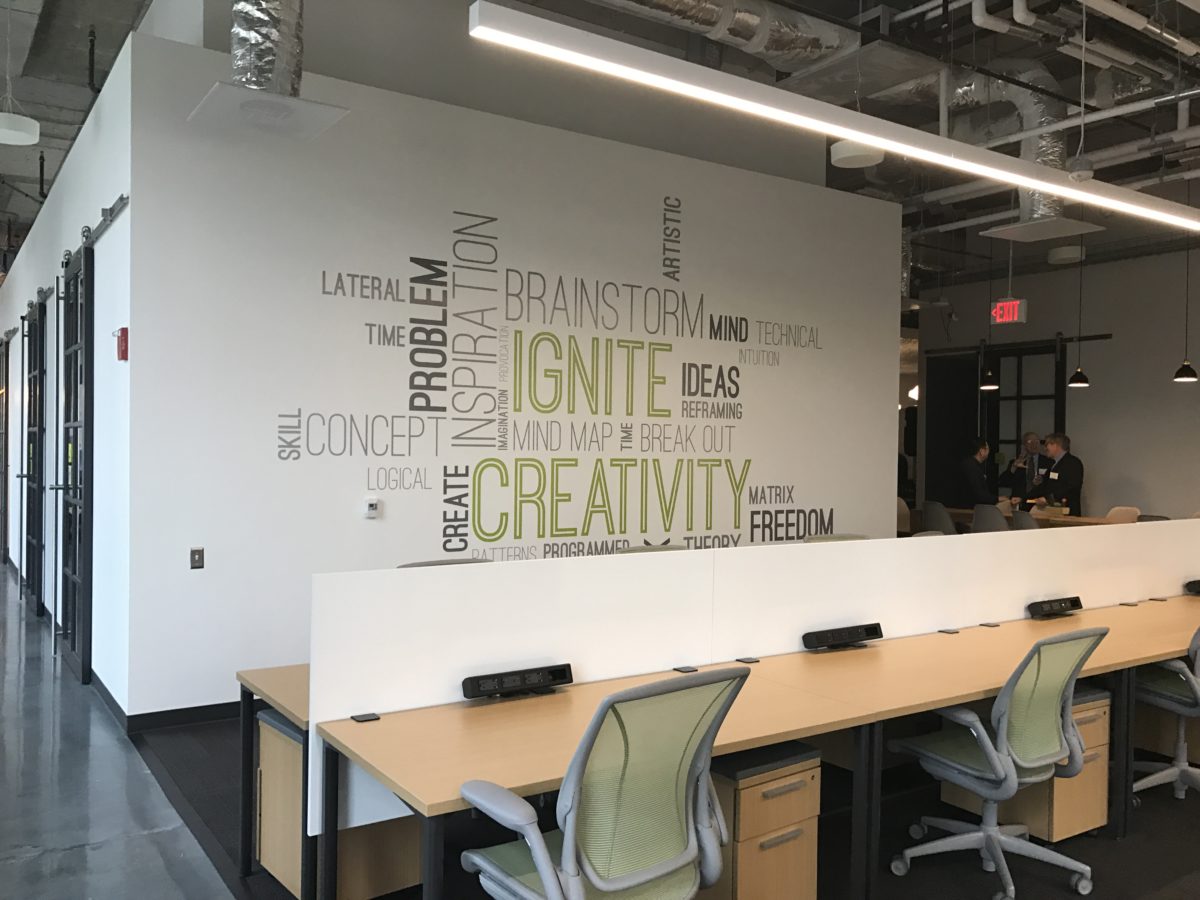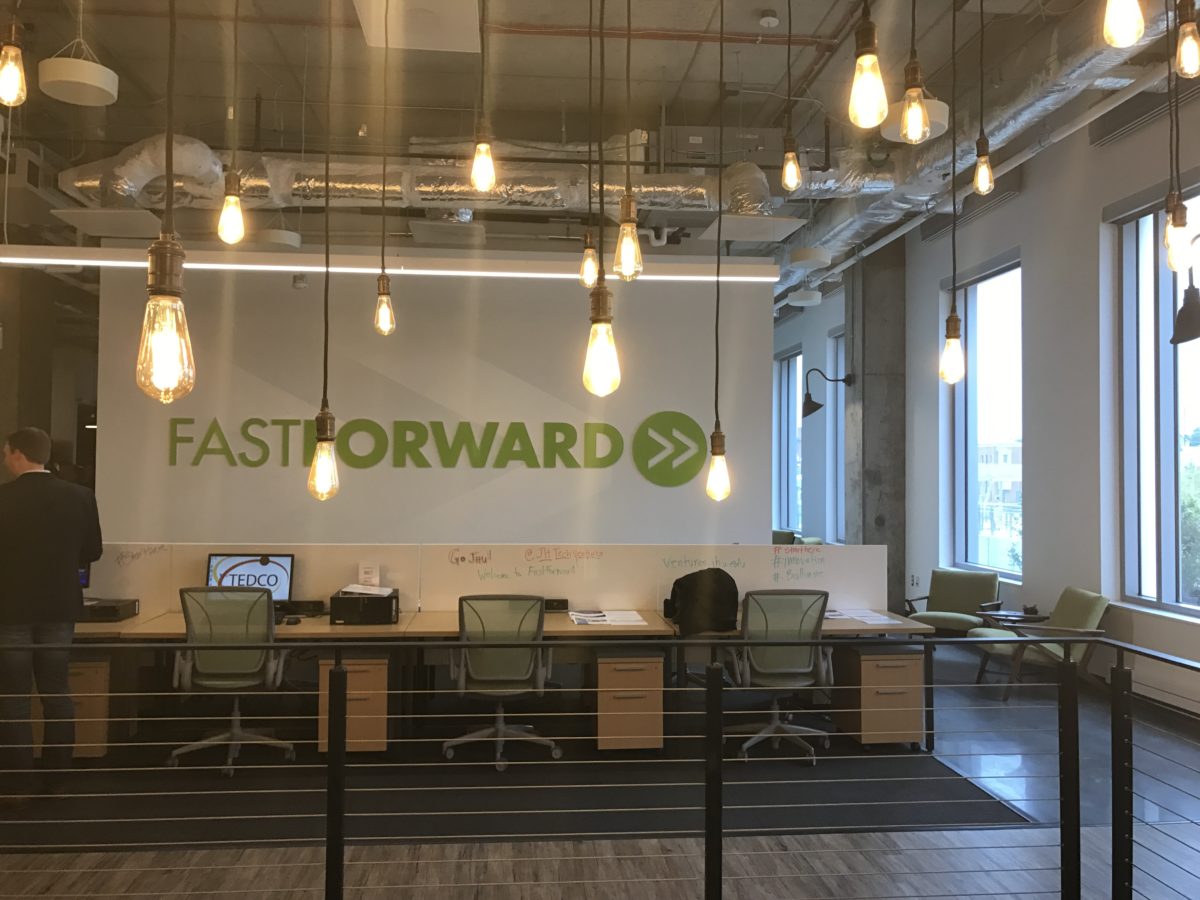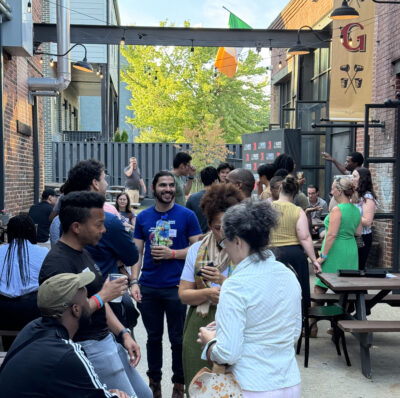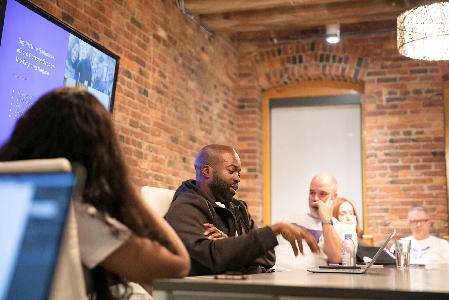As they look to commercialize more research, leaders at Johns Hopkins see providing space for startups as one of the keys.
With an opening on Wednesday night, the university made good on providing about 22,000 square feet for new companies adjacent to its hospital campus and medical school in East Baltimore.
Mayor Catherine Pugh, Johns Hopkins President Ronald Daniels and Christy Wyskiel, who leads Johns Hopkins Tech Ventures, lit up the “Start Here” sign, officially opening FastForward 1812.
The two floors of office and lab space is located inside the recently-opened building at 1812 Ashland Ave.

Lab supplies. (Photo by Stephen Babcock)
The space is open to all Baltimore startups, but it’s clear that Johns Hopkins wants more of the companies created from its research to grow in the city. The cutting-edge research happening at the university provides lots of potential for biotech and health IT. Providing space and resources to help the companies grow is a way to encourage that research to stay in Baltimore.
Companies founded with technology licensed from the university have raised more than $1.1 billion since 2012, yet 85 percent are located outside of Maryland, according to Johns Hopkins Tech Ventures.

Officials open FastForward 1812. (Photo by Stephen Babcock)
“We realize that Baltimore will no longer allow the corridors of I-270 to take on all those tech companies, because we know we can do it right here,” Pugh said. “I’m excited, and I’m so proud of Johns Hopkins and its investment in Baltimore.”

FastForward 1812. (Photo by Stephen Babcock)
Once it was ready earlier this year, 19 companies took space at FastForward 1812. According to JHTV, the incubator doubles the amount of JHU space that’s available for startups, which also includes the smaller FastForward East that opened in 2015 and space near the Homewood campus.
Entering on the building’s first floor, the space has 8,000 square feet of offices and coworking. Along with space for work and meetings, companies also get access to legal, accounting and fundraising experts.
The floor below features 15,000 square feet of BSL2 wet lab space, which is also a mix of shared benches and private areas. The lab space and supplies needed is frequently in demand for startups when they are first getting off the ground.
Along with what happens inside the incubator, Hopkins officials said the building itself offers chances for collaboration. The offices of Johns Hopkins Tech Ventures moved next door to FastForward 1812. It’s also a place for collaboration with industry, as a center that works with Toshiba is also taking space in the building.

(Photo by Stephen Babcock)
emocha, a Hopkins spinout that makes mobile health monitoring apps, moved to FastForward 1812 from the smaller FastForward East location that opened in 2015.
Along with being an inviting space, emocha’s Morad Elmi said the “proximity to Hopkins and the clinicians and researchers there, and the support that Johns Hopkins Tech Ventures provides is essential to helping us grow.” He also added that there are more amenities popping up, such as places to eat.
Before you go...
Please consider supporting Technical.ly to keep our independent journalism strong. Unlike most business-focused media outlets, we don’t have a paywall. Instead, we count on your personal and organizational support.
Join our growing Slack community
Join 5,000 tech professionals and entrepreneurs in our community Slack today!





